'Special’ tax regime likely to be withdrawn for booming construction sector
10-month revenues sink to a meagre Rs112 million against FBR’s estimate of Rs8 billion.
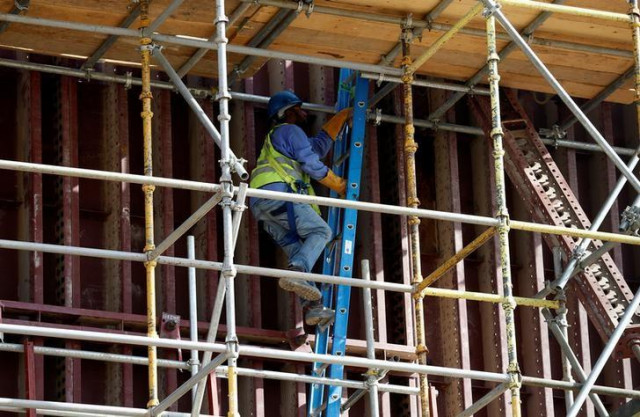
PHOTO: REUTERS
The dismally low revenue generation from a booming sector belies tall claims of the sector that lured tax authorities into believing that the builders and land developers would pay Rs28 billion in income tax under the new final tax regime in fiscal year 2016-17.
Shehbaz inaugurates multibillion-rupee projects in Faisalabad
The disappointing results have left the authorities with no option but to withdraw the special facility from fiscal year 2017-18, said sources in the Federal Board of Revenue (FBR). If the prime minister approves the proposal, the sector would be charged under the old regime, they added.
The final tax regime had been offered to the influential land mafia under pressure, said sources in the finance and revenue ministry. Under the old tax regime, the construction sector had paid Rs2.6 billion during fiscal year 2015-16.
After reaching a consensus with the Association of Builders and Developers of Pakistan (ABAD), the FBR had introduced the special regime and introduced a fixed tax on the basis of unit area. The FBR had introduced section 7C in the Income Tax Ordinance 2001 to give effect to the special rate for builders and 7D for land developers.
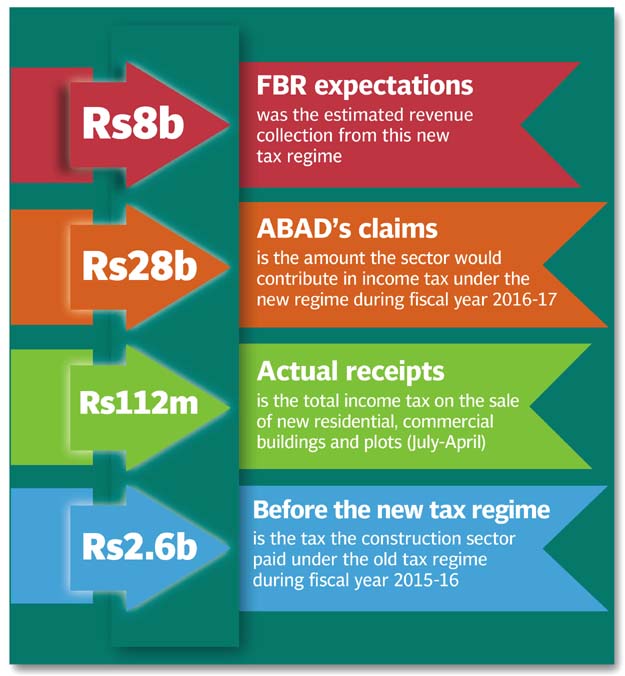
However, the total income tax collection from the developers and builders from sale of new residential, commercial buildings and plots stood at only Rs112 million from July through April, according to FBR data.
During the first ten months, the builders paid a meagre sum of Rs74 million in income tax on new schemes while land developers’ contribution was abysmally low at Rs38 million.
The FBR had budgeted revenue of Rs8 billion from this new tax regime while Karachi-based ABAD had claimed that it would pay Rs28 billion in income tax under the new regime during the fiscal year 2016-17.
The contributions fell even below the level of Rs2.6 billion contributed in the previous fiscal year 2015-16.
Under the new regime, the builders and developers were supposed to pay Rs210 per square foot on commercial buildings. On residential buildings, Karachi, Lahore and Islamabad builders were required to pay Rs20 to Rs70 per square ft, depending upon the size. For B-category cities the rate is Rs15 to Rs55 per square foot. For urban areas not specified in category A and B the rates are Rs10 to Rs35 per sq foot.
Lahore plans its own Twin Towers
The average rate of tax on builders of all categories comes to just Rs33 per sq foot. At this average rate, the ABAD had claimed that the builders would pay Rs14 billion in revenue in fiscal year 2016-17 and the developers were also supposed to pay another Rs14 billion.
The FBR had also accepted the ABAD’s claim of huge revenue potential.
Historically, tax contributions from builders and land developers have not matched their investments and profit accruing from the construction sector.
The FBR was of the view that the construction was the main industry showing consistent boom despite the wave of terrorism in the last decade and severe economic problems. The bulk of savings are parked in the housing sector and heavy investments are made in real estate.
Under the new regime, the FBR had decided to recover the taxes through the representatives of the association. At the time of approval of a house, a building plan or a land development plan, a builder, owner or a land developer was supposed to apply to the chief commissioner of Inland Revenue for payment of tax in a prescribed application setting forth the details of the project, tax liability and schedule of instalments.
Before approval of the project, 5% of the tax liability had to be deposited and the remaining 95% in four instalments spanning over the project life.
In case of default on payments of instalments, the FBR had retained the right to recover the money by exercising special powers including withdrawing money from the bank accounts.
Published in The Express Tribune, May 3rd, 2017.
Like Business on Facebook, follow @TribuneBiz on Twitter to stay informed and join in the conversation.



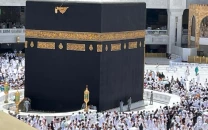

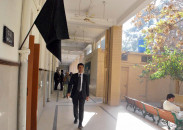
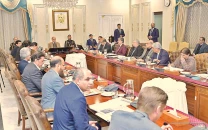











COMMENTS
Comments are moderated and generally will be posted if they are on-topic and not abusive.
For more information, please see our Comments FAQ